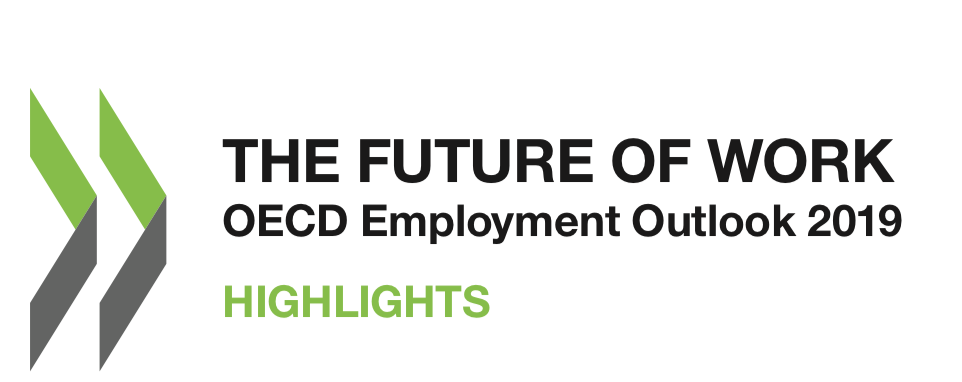“Despite the many opportunities, much anxiety surrounds the future of work. Doomsday scenarios are unlikely to materialise, but there are some real risks. Many are worried that the world of work is heading for a dystopian future of massive technological unemployment, precarious work, workers with little or no bargaining power, and important skills gaps as populations age rapidly. But the future of work will largely depend on the policy decisions countries make. With the right policies and institutions in place, the opportunities that digitalisation, globalisation and longer lives will bring can be seized, and the risks mitigated”. Read the complete report HERE.
“Globalisation, technological progress and demographic change are having a profound impact on OECD labour markets, affecting both the quantity and quality of jobs that are available, as well as how and by whom they are carried out. The future of work offers unparalleled opportunities, but there are also significant challenges associated with these mega-trends. While it is difficult (if not counter-productive) to try and plan in detail for the potential changes that might affect the world of work in years to come, it is important that policy makers strengthen the resilience and adaptability of labour markets so that workers and countries can manage the transition with the least possible disruption, while maximising the potential benefits. Against this backdrop, the OECD Future of Work initiative looks at how demographic change, globalisation and technological progress are affecting job quantity and quality, as well as labour market inclusiveness – and what this means for labour market, skills and social policy”. The Future of Work in Figures HERE.


Recent Comments